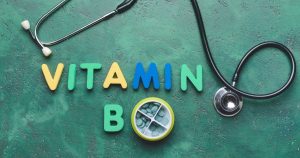December 3, 2024 from Science Alert

Researchers have long suspected that the connection between the gut and brain plays a role in the development of Parkinson’s disease. A recent study has identified specific gut microbes that may be involved and linked them to decreased levels of riboflavin (vitamin B2) and biotin (vitamin B7). This discovery suggests that B vitamin supplementation could provide a simple yet effective treatment for some patients.
Hiroshi Nishiwaki and colleagues at Nagoya University published their findings in May, stating that “supplementation of riboflavin and/or biotin is likely to be beneficial in a subset of Parkinson’s disease patients, in which gut dysbiosis plays pivotal roles.”
How Gut Bacteria May Influence Parkinson’s Disease
Parkinson’s disease affects nearly 10 million people worldwide. Symptoms often begin with constipation and sleep disturbances up to 20 years before progressing into cognitive decline and motor impairments. Previous research has shown that changes in gut bacteria can occur long before these symptoms appear.
Nishiwaki and his team analyzed fecal samples from 94 Parkinson’s patients and 73 healthy controls in Japan, comparing their findings with data from China, Taiwan, Germany, and the US. While different bacteria were implicated in each country, they all influenced the body’s ability to synthesize B vitamins.
The Role of B Vitamins and Intestinal Health
The researchers found that changes in gut bacteria were associated with reduced levels of riboflavin and biotin. This deficiency was linked to a decline in short-chain fatty acids (SCFAs) and polyamines, which help maintain a protective mucus layer in the intestines.
A thinner mucus layer may increase intestinal permeability, potentially exposing the nervous system to environmental toxins such as pesticides and herbicides. These toxins are known to promote the accumulation of α-synuclein fibrils—protein clumps that contribute to Parkinson’s disease by damaging dopamine-producing neurons.
Potential Treatment Approaches
A 2003 study found that high doses of riboflavin improved motor function in some Parkinson’s patients who also eliminated red meat from their diets. Nishiwaki and his team propose that supplementing with vitamin B could help prevent or slow the progression of the disease.
They also suggest that maintaining a healthy gut microbiome and reducing exposure to environmental toxins could be protective measures. Since Parkinson’s is influenced by multiple factors, individual assessments may be necessary.
“We could perform gut microbiota analysis or conduct fecal metabolite analysis,” Nishiwaki explains. “Using these findings, we could identify individuals with specific deficiencies and administer oral riboflavin and biotin supplements to those with decreased levels, potentially creating an effective treatment.”
Considering an IME or document review to resolve an insurance claim, legal file, or workplace health and safety issue?
Our specialists provide evidence-based opinions, so get in touch with Western Medical today to learn more about our services.

